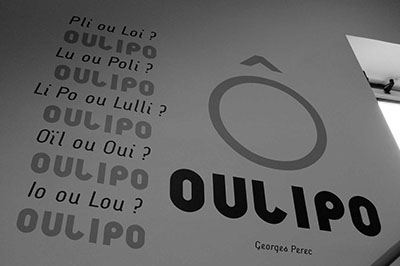 The anagram
The anagram How to play with letters
The anagram consists in switching every letter of a word or word group with other in order to create an entirely new word or group. Just as "steal" and "least", "Albert Einstein" and "EliteBrains.net" are all anagrams.
A centuries-long game
Greek poet Lycophron probably invented the anagram in the Antiquity. In the 16th century, it became a popular game among the humanists and the poets of the French Pléiade. In the 20th century, surrealism and the Oulipo try the game: indeed, it can create strikingly poetic outbursts.
Educated artists also set accounts through anagrams: in the 1940's the king of surrealism André Breton mocked Salavador Dali's greediness by transforming the name of the Spanish artist into "Avida Dollars". On the other hand, an anagram can be a cry for love. To start a manifest against the scattering of manuscripts from the same André Breton in auctions, several writers shouted: "No, end barter!" (Te brader, non !). Today, the Scrabble® is the most popular game of anagrams. An old French TV show "Des chiffres et des lettres" (equivalent to the TV show "Countdown") uses the same scheme. As such, no need to be a great poet to have fun playing with words.
The art of hiding
The anagram is a simple secret code to cipher information. By using an anagram to change his name, a writer can stay anonymous, but without giving up his real name, since the letters are still visible. In the turmoil of the Reformation, (François Rabelais (who died in 1553) published many books under the name "Alcofibras Nasier".
By not following grammar rules or correct spelling, "glossolalia" or "language of Tongues" consists in diverting an actual language (French, but also Latin or Japanese) through various codification processes. Anagrams are a key part of the process: the message looks absurd, but only a few initiates will understand the true meaning.
In the Middle Age, Alchemists used glossolalia to exchange trade secrets. French poets François Villon (1431-1463), Rabelais or Cyrano de Bergerac (1619-1655) also used this language to hide the mystic aspect of their work.
The subconscious: a major Scrabble player?
Just as the Freudian slip, psychoanalysts consider the anagram as a form of expression of the subconscious. Several psychoanalytical trends are interested in this kind of wordplay that can burst in our dreams.
According to the disciples of French psychoanalyst Jacques Lacan (1901-1981), the anagram is a lead to decipher messages sent by our subconscious. The subconscious is much faster than our conscious mind and could be able to produce almost instantly an almost perfect anagram. In a casino, after a streak of bad you might say, "Cash lost in 'em" instead of "Slot machines"!
But beware: life is not a game of scrabble, so don't overthink too often!
Credits: ©Les Champs libres
